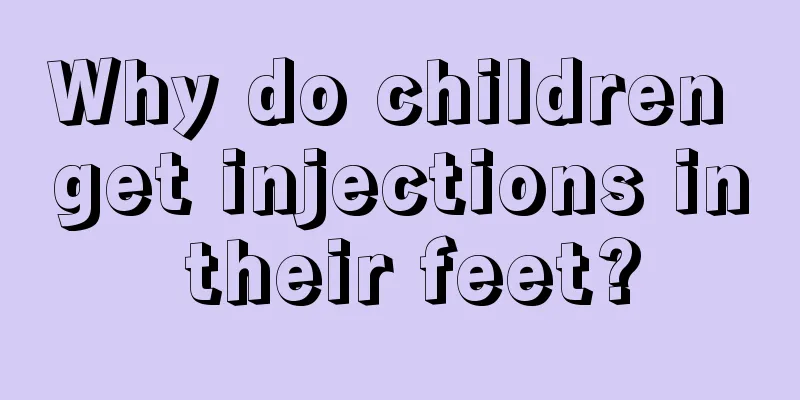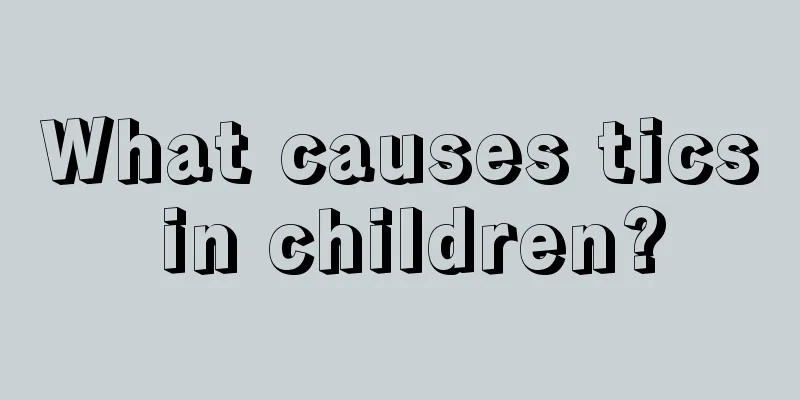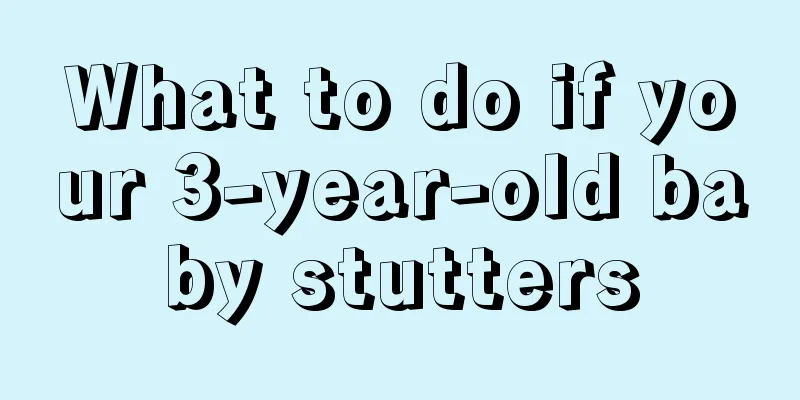Why do children get injections in their feet?

|
As children grow up, they will get sick. Sometimes some diseases require the baby to be treated with an IV drip. However, many careful parents have discovered that some babies are usually given injections in their feet. In fact, injections are given in the feet because the blood vessels in the feet are relatively thick, making them easier to insert. Also, babies will not move their hands around, which can prevent the needle from moving away. Parents do not need to worry too much. How to help children overcome their fear of injections? 1. Pay attention to instilling correct ideas in children in daily life. We let children know that injections are for the purpose of curing illnesses, just like eating when you are hungry and sleeping when you are tired. It is just a small thing in life that must be done. The reason why children are afraid of injections is that they regard injections as a "big deal". The more you care, the more likely you are to feel nervous. When children understand that going to the hospital when they are sick is a natural part of daily life and there is nothing to be alarmed about, their anxiety will be greatly reduced. 2. Don’t joke with your children about “injections”. Mommy Xiongzi knows that some friends like to joke with their children, but they should never use "injections" to tease their children. "What should we do if the doll is disobedient? Let's give her an injection to punish her." Words like this will make children feel that injections are a form of punishment, and they will resist injections in the future. 3. Before taking your child for an injection, parents must first adjust their emotions. If parents want their children to feel comfortable with injections, they must first relax. When taking your child to the hospital, try not to talk to your child about injections, and chat with your child about some light topics. Some parents like to cheer their children up and encourage them to be brave before they get an injection. Little do they know that this will actually serve to emphasize the issue and cause tension in the child. 4. Tell the truth to your children so that they can have a correct understanding of injections. The injection is about to happen. When the child sees the long needle about to be inserted into his or her little butt, he or she will inevitably ask: "Will the injection hurt?" How should we answer at this time? If you lie to your child and say it doesn't hurt, the child will not be mentally prepared enough and may lose control due to the sudden pain during the injection. Even if you are successful this time, it will leave a psychological trauma in the future. So we have to answer truthfully: "Baby, the injection will hurt a little, but not too much, just like when you fall and it will be fine in a while." 5. During the injection process, never hold the child down forcibly, and parents should be patient. If the initial psychological counseling method is incorrect, causing the child to move around during the injection, parents must be patient and continue to comfort the child with words until the child cooperates. Never use force to hold your child down for an injection. Otherwise it will really become a "one-time deal", and the next time you take your child to get a shot, the child will definitely not cooperate. 6. Touch your child more when giving an injection to give him a sense of security. When children are anxious, a parent's touch is a great way to relieve them. A warm pat on the head lets children know that their parents are always with them, which will give them a lot of courage. 7. Divert your child’s attention with interesting things. Distracting attention to reduce the pain experience is always the most scientific method. Children's attention is most easily diverted, so we should talk to children about interesting things as much as possible and not let them focus on the injection. While the children were listening with great interest, the injection was already over. 8. After the injection, parents should remember to praise their children. When the injection is over, parents should praise their children no matter how they performed just now. "Good job, baby. You were so brave just now." "Among all the children who got injections in the room just now, baby was the strongest!" With such praise, the child will be influenced by the "sense of honor" the next time he gets an injection and will behave stronger. |
<<: Can children eat aloe vera mineral crystals?
>>: The child's toes were bruised
Recommend
Can a 10-year-old drink lemonade?
Lemon is rich in nutrients, especially vitamin C....
Can babies eat mangosteen?
Mangosteen is exactly the opposite of durian in n...
Childhood paralysis
Paralysis is simply the loss of feeling or moveme...
What to do if your newborn gets angry
It is a common phenomenon for newborns to get ang...
Children cough when they run hot
If our baby coughs when exercising, it may be cau...
What to do if the newborn has scrotal effusion
The health of every child is what parents worry a...
There are these dangers for children who often eat cold drinks
As the weather gradually gets warmer, a lot of co...
How to treat children's hallux valgus?
The condition of clubfoot can be discovered after...
Dosage of Isatis Root for Children
Because Isatis root is a traditional Chinese medi...
What's wrong with the white spots on the child's face?
White spots are not unfamiliar to many people. Th...
Childhood obesity is harmful: Five strategies to prevent it
Due to lack of sufficient nutritional knowledge, ...
How to cultivate children's language expression ability
When children are in their early childhood, paren...
What should I do if my baby’s ears are flooded?
When our body produces a lot of sweat, if it is n...
What is the disease of children with bloody stools without pain
The occurrence of digestive diseases can be disco...
What should I do if my 40-day-old baby has eczema?
Infant eczema has many common names, such as milk...









